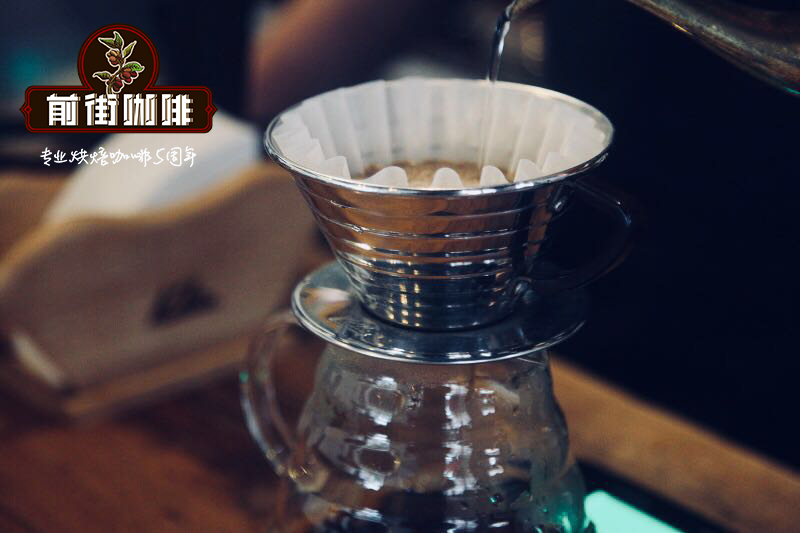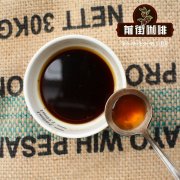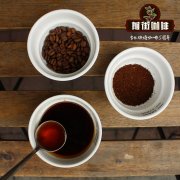What you don't know about coffee Yunnan Coffee Chinese Coffee Development History

Professional coffee knowledge exchange more coffee bean information please follow the coffee workshop (Wechat official account cafe_style)
Coffee is imported in China, but do you know that coffee is also imported to Europe and America, and its real name is not coffee? In Ethiopia, there is a province called Kafa province, which produces a kind of plant fruit, which has mellow, sweet, fruity, sour and bitter flavors, and has a refreshing and calming effect after eating. European colonists brought the plant to Europe when they plundered the African continent. At the same time, Arab countries also spread the plant to Central Asia and Southeast Asia. Over time, people have harmonized this plant, which is rich in the African province of Kafa, and call it coffee.
Coffee is not only bitter, but also sweet, sour, mellow and fragrant. According to the origin, mellow and sour taste is different. Bitterness is the taste of caffeine, although it has been cultivated and propagated for thousands of years. Mellow is the taste of fat and protein in coffee after baking, which is a bit like the mellow of our minority buttered tea. The sour taste is tannin, and yes, it is the kind of thing rich in red wine. Sweetness is the role of plant fructose produced by coffee in the process of roasting and coking, and the degree of sweetness varies according to varieties and production processes. Blue Mountain Coffee, the second most expensive coffee in the world, is famous for its rich flavor and strong sense of layer.It is rare in production and monopolized by some trading companies, resulting in high prices. China has no record of importing Blue Mountain before 2008, at least the customs has no relevant import information. There is no denying that China has authentic Blue Mountain coffee, either brought by private individuals or smuggled. Therefore, when you taste the Blue Mountain in the cafe, you should pay attention to the fact that the merchants with a better conscience can say the Blue Mountain flavor, which means using many different varieties of coffee beans to match the Blue Mountain flavor.
It is also imported, but Europe and the United States retain many flavors of coffee. While most of our Chinese coffee drinks are left with bitterness and coffee aroma, there is no sweetness, mellow, fruity, or sour aroma, and some Chinese think that the bitterness the better. I tell you that this concept is wrong. Roasting is an important part of coffee making process, and roasting is the process of coffee coking. The role of temperature in the roasting process releases sweetness, alcohol and acid in coffee. Heavy baking disappears these flavors, leaving only the bitterness of caffeine. Therefore, the concept that the more bitter the better, is wrong. This concept is influenced by the island country or Taiwan. Sumatra is rich in a famous coffee variety, Mantenin, which is suitable for heavy roasting and roasting is the process of coking coffee fructose. During World War II, a Japanese soldier tasted this coffee in Sumatra and was introduced to Japan after the war. Using heavy baking technology, exported to Taiwan and East Asia and Southeast Asia, this company is Japan's famous Pwangni Coffee Company. The bitter taste of this very good variety of coffee has the upper hand, so that the other flavors have almost disappeared. If you are a heavy mouth, it is very suitable. Some instant coffee which is also popular in China, if you can taste the sweet, sour and mellow taste, then I will bow to you and admire it. The raw materials of these instant coffee are low-grade commercial beans, including insect beans and weak beans, using heavy baking technology, and heavy roasting brings heavy coking, that is, removing the miscellaneous taste of insect beans and weak beans, leaving only bitter taste, in order to improve the mellow taste, specially add milk, sugar and other additives, not only reduce the cost, but also improve the taste, but consumers are kept in the dark. Of course, insect beans, weak beans can not be eaten, but the taste is not very good, and beauty ladies drink instant coffee for a long time, very easy to get fat, be careful.
In China, coffee making technology is generally not high, and Chinese people taste coffee nothing more than cafes or instant coffee, resulting in the concept that today's coffee is only bitter. There are places in China where coffee production technology is very high. due to historical and geographical conditions, high-level production techniques are mostly concentrated in Hong Kong and Macao, and some Hong Kong and Macao manufacturers have even participated in the formulation of international coffee production standards, especially in Macao. Macao people are naturally tranquil, eat as much as they earn, are not greedy, and traditional production techniques have been passed down, using fewer additives to perfectly retain the true flavor of coffee. Brands such as Macao's "Eslite" and "Prince Yin" may not be familiar to mainlanders. Before the return, several Australian governors were loyal users and exported to Portugal and Brazil. Exporting Portugal may not be a big deal, but exporting to Brazil shows their craftsmanship, because Brazil is the world's largest coffee producer, providing 30% of the world's coffee. Hong Kong and Macao manufacturers are also very particular about the use of raw materials, the vast majority of raw beans are famous varieties with certificates of origin, interested friends can give it a try.
Yunnan Province of China also produces coffee beans, but the quality is generally not high. The reason is that small farmers plant and harvest raw beans unevenly. Unlike large coffee countries such as Brazil and Africa, they are all large estates. A number of raw beans are of the same quality, and merchants like to purchase. It is suggested that Yunnan should adopt large manor production and planting, consolidate the foundation of China's coffee industry, revitalize Yunnan coffee industry, and "make the world fall in love with China."
Important Notice :
前街咖啡 FrontStreet Coffee has moved to new addredd:
FrontStreet Coffee Address: 315,Donghua East Road,GuangZhou
Tel:020 38364473
- Prev

How long does it take for a zero-basic barista to learn to make coffee? Where should I learn to make coffee in Wuyi area?
Professional coffee knowledge exchange more information about coffee beans Please follow the coffee workshop (Wechat official account cafe_style) in Europe, Korea, Taiwan and other places, there are almost as many coffee shops as convenience stores. This atmosphere is also gradually affecting Hong Kong, and many young people dream of opening a leisure coffee shop of their own. But the job of a barista is by no means easy. A cup of coffee.
- Next

Learn to make coffee | the correct way to teach how to use a hand coffee maker to make coffee
Professional coffee knowledge exchange more coffee bean information please follow the coffee workshop (Wechat official account cafe_style) super! The simple method of making coffee by hand does not need to spend money to learn how to make coffee. You know the steps of making coffee by hand. Meina loves the mellow taste of coffee. She looks at Albus's hand coffee every day and finds that there are a lot of details in the steps of hand coffee making.
Related
- Beginners will see the "Coffee pull flower" guide!
- What is the difference between ice blog purified milk and ordinary milk coffee?
- Why is the Philippines the largest producer of crops in Liberia?
- For coffee extraction, should the fine powder be retained?
- How does extracted espresso fill pressed powder? How much strength does it take to press the powder?
- How to make jasmine cold extract coffee? Is the jasmine + latte good?
- Will this little toy really make the coffee taste better? How does Lily Drip affect coffee extraction?
- Will the action of slapping the filter cup also affect coffee extraction?
- What's the difference between powder-to-water ratio and powder-to-liquid ratio?
- What is the Ethiopian local species? What does it have to do with Heirloom native species?

